Cascading curtains and soft backdrop lend play a simple vitality, Chen Nan reports.
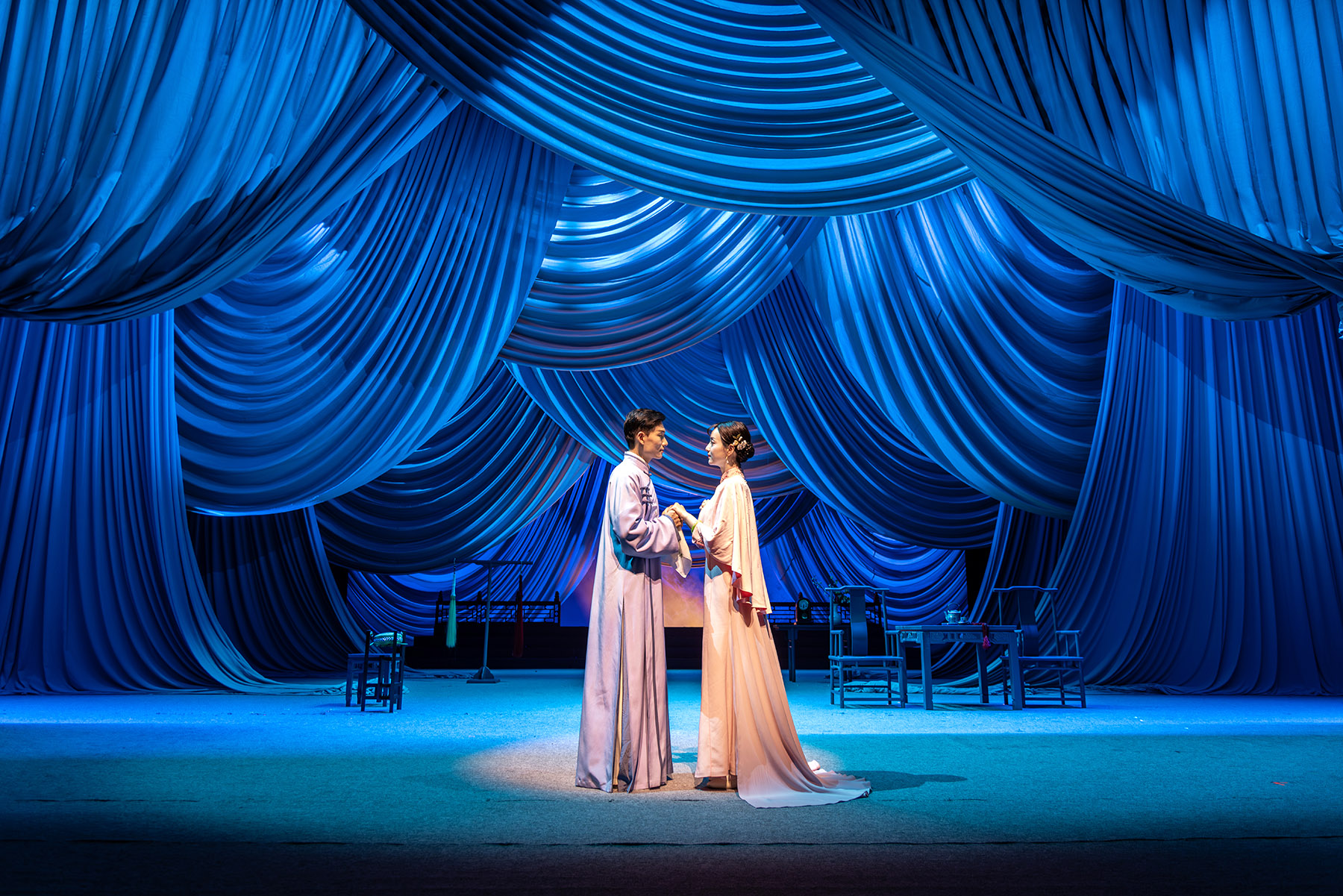
When audiences watch the latest adaptation of Beijing People's Art Theatre's Returning Home on a Snowy Night, they are introduced to a unique theatrical experience shaped by a minimalist stage design inspired by traditional Chinese opera.
Rather than relying on elaborate realism or cutting-edge technology, the production embraces an abstract, poetic aesthetic that evokes the spiritual depth of traditional Chinese stage craft.
The design captures an ethereal beauty, using soft backdrops that create a dreamlike atmosphere. Flowing, translucent curtains cascade delicately, establishing a light, airy ambiance that invokes a sense of purity and tranquility.
READ MORE: Reviving the classics
Returning Home on a Snowy Night, originally written in 1942 by playwright Wu Zuguang (1917-2003), was first performed by the theater in 1957. The latest adaptation, which premiered on April 25 at the Capital Theatre, an exclusive performance venue belonging to the Beijing People's Art Theatre, will run until May 11.
The play centers around Wei Liansheng, a renowned Peking Opera actor, and explores his journey through the heights of fame and the depths of despair. At the heart of the tragedy is Wei's ill-fated love affair with Yuchun, the concubine of a powerful bureaucrat, a romance that ultimately leads to their untimely deaths.
"The stage at the Beijing People's Art Theatre is often associated with a sense of weight and gravitas," says Feng Yuanzheng, the veteran actor, director and president of the Beijing People's Art Theatre.
"We wanted to break away from that impression and infuse the design with a sense of lightness."
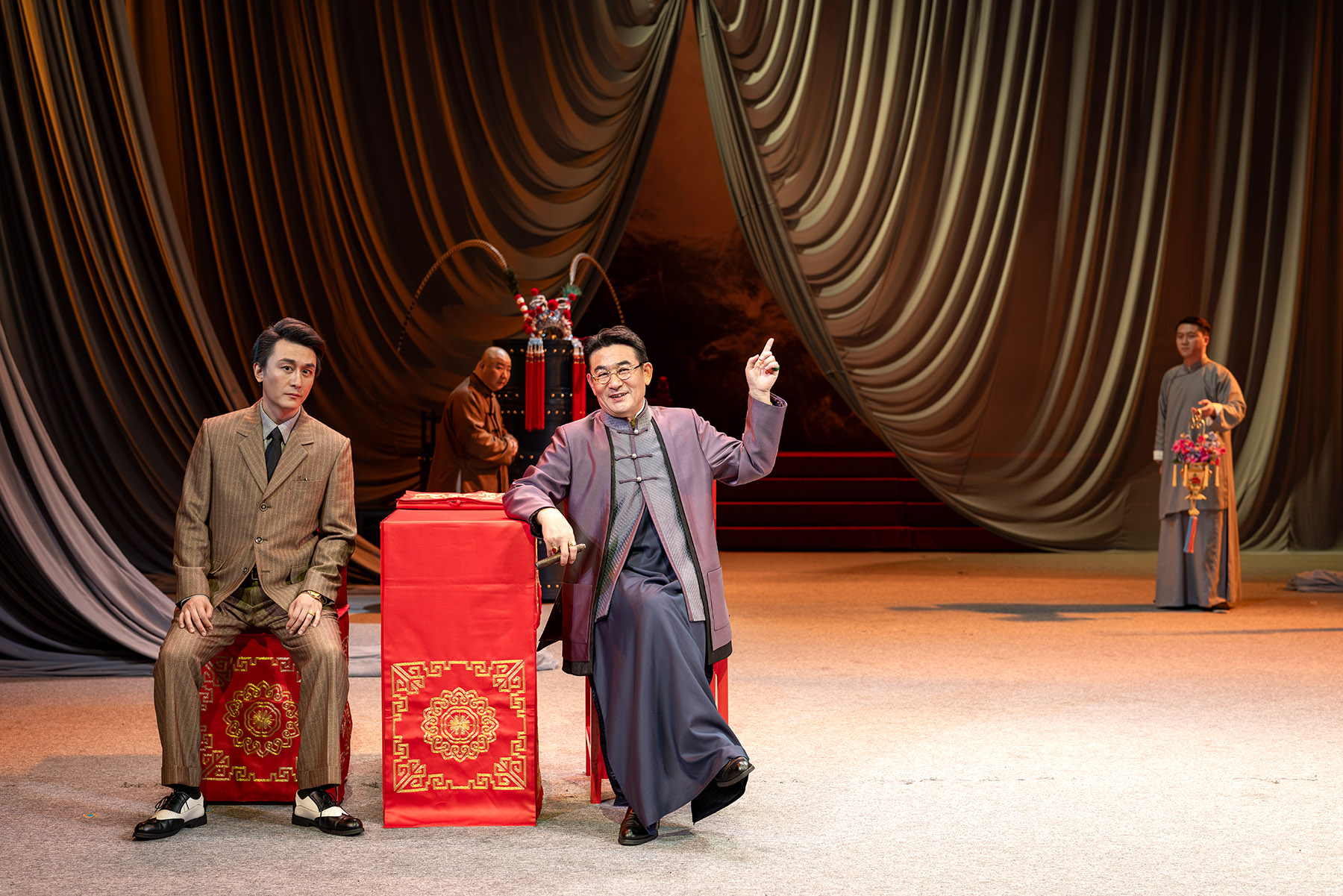
He adds that the production "doesn't simply depict love and hate, or good and bad people. It delves deeply into the complexity of human nature".
"We emphasized love as the central theme, making 'tragic beauty' the emotional core of the play. We also infused it with elements of traditional Chinese culture, reinterpreting the classic from a modern perspective," Feng continues.
Yan Rui, the director of this latest adaptation, elaborates on the vision behind the production.
"The language is rich in poetry and carries the background of traditional opera stories, so we wanted to incorporate the elegance and timeless quality of traditional Chinese opera into the performance.
"The stage design elevates the performance, lending a timeless, almost meditative quality to the experience. Sparse props, such as the graceful, shifting curtains, withered trees hanging upside down, minimalistic Chinese-style railings and the elegant moon gate collectively evoke the image of a courtyard, a stage and a study."
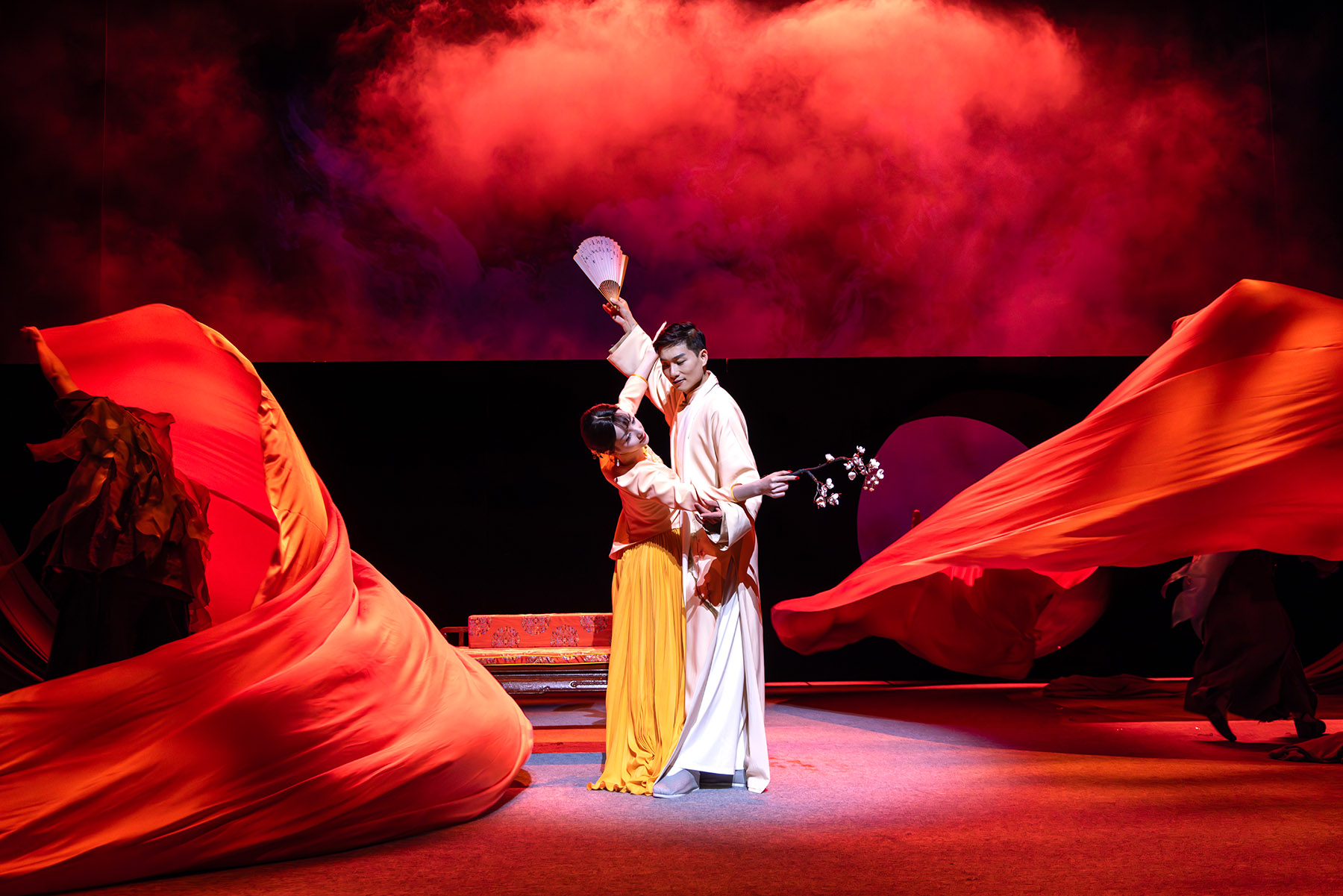
The performances harmonize with the elements of traditional Chinese opera. The actors' physical movements, gestures and expressions — conveyed primarily through the eyes — allow them to vividly externalize the characters' inner emotions. These techniques, drawn from Chinese opera's singing, speech, movement and dance, present a deeper connection to the characters, according to Yan.
Liu Heng, a Kunqu actor from the Northern Kunqu Opera Theatre, plays the role of Wei, while actress Lu Lu of the Beijing People's Art Theatre portrays Yuchun, Wei's lover.
"In dance, emotions are often amplified through expansive, expressive movements. In traditional Chinese opera, such as Kunqu, emotions are more subtle — controlled, inward, and revealed through stylized gestures," explains 22-year-old Lu, who has been training as a dancer since childhood.
"Yuchun's character embodies an elegant, poetic femininity, shaped by both dance and traditional Chinese opera."
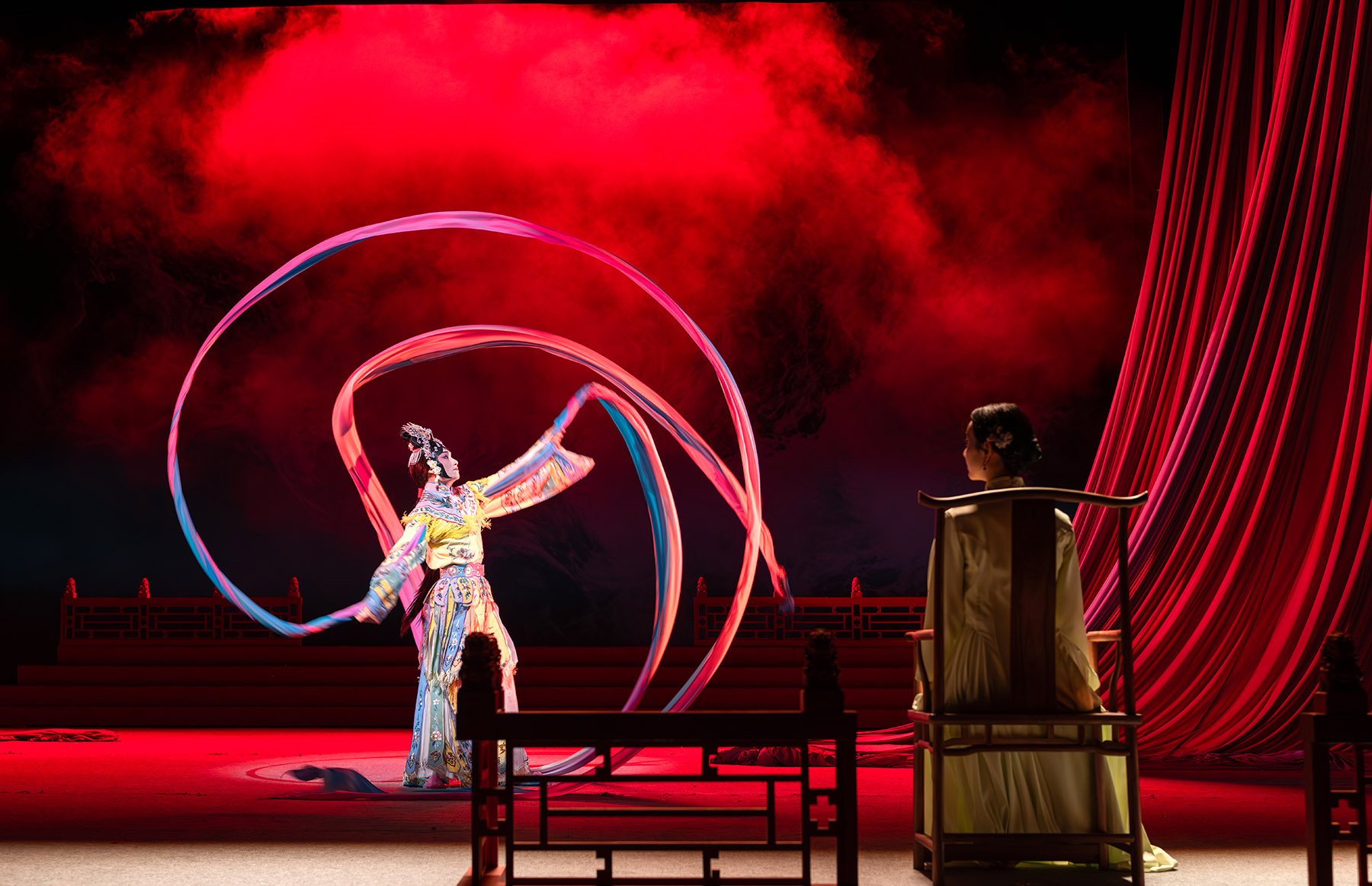
Liu, on the other hand, says that xiqu (Chinese opera) is highly formalized, relying on specific conventions such as singing, recitation and gesture.
The actors follow a set pattern of movements and expressions, and their speech is often accompanied by a distinctive singing style, known as changqiang, where the tone and pitch can be exaggerated.
In contrast, modern drama places a greater emphasis on naturalistic performance, and actors are expected to convey raw, genuine emotions, often reflecting the inner psychological states of their characters. This contrasts with the stylized and often larger-than-life performances seen in opera.
"Chinese opera has its singing styles and recitations, and is supported by the rhythm of the gongs and drums, relying on stylized movements. But drama, on the other hand, depends entirely on the genuine emotions of the heart," says Liu.
"I tried to reconcile these two forms of performance. Take the lines as an example. In Chinese opera, actors habitually inhale and raise their pitch, but when portraying Wei Liansheng, I need to speak as if I were conversing in everyday life — calmly, with controlled breathing."
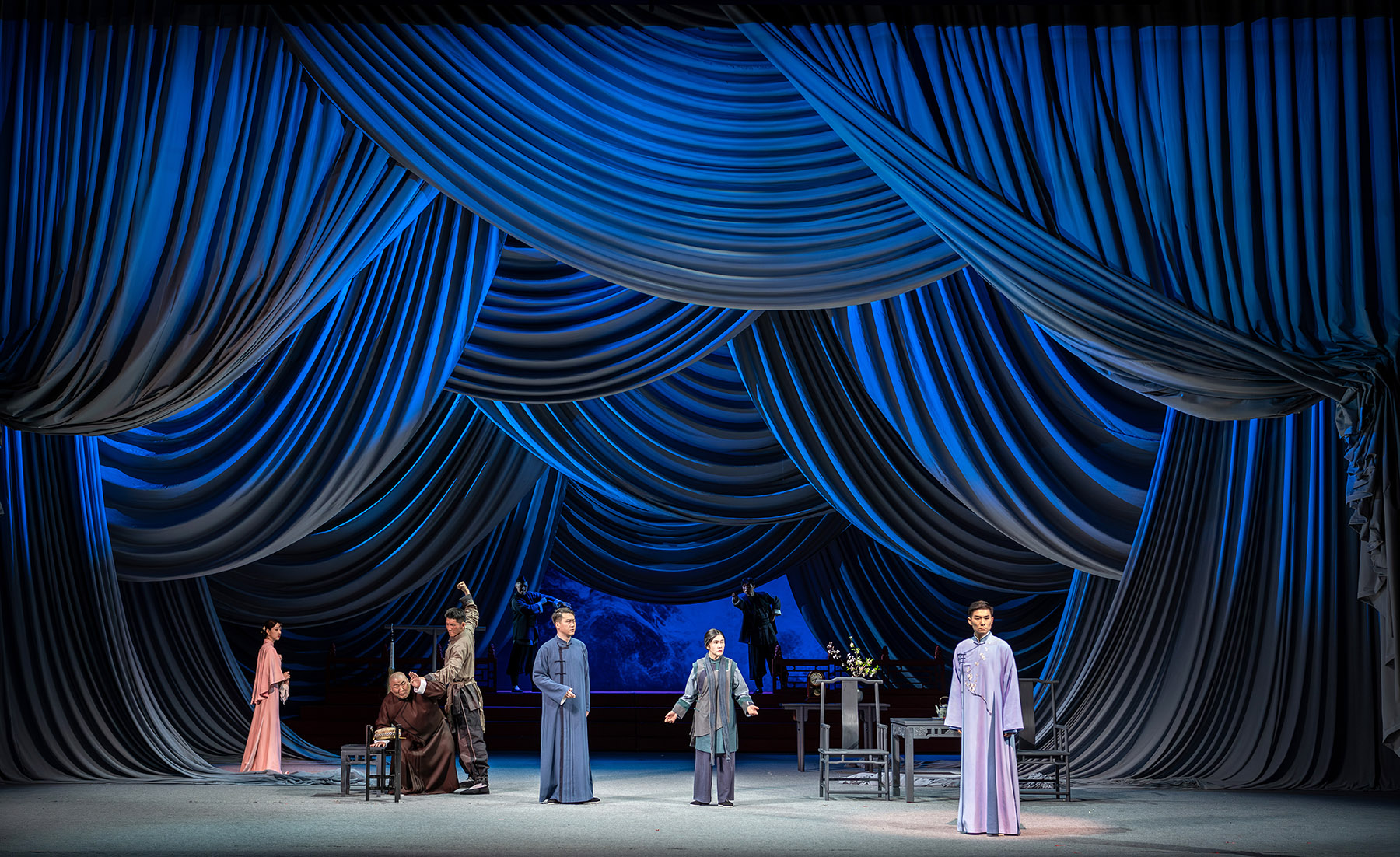
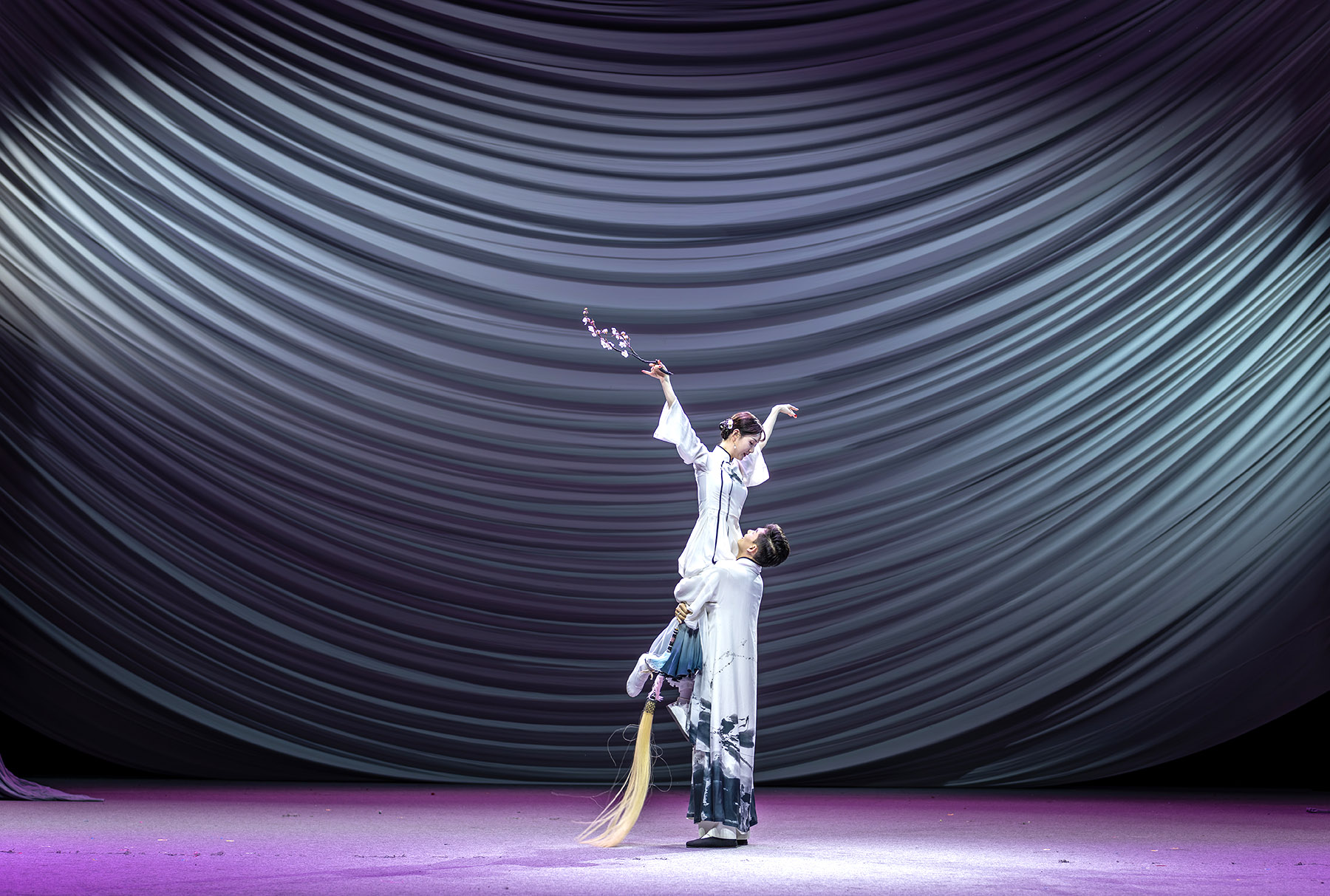
According to Feng, this production inherits the abstract and symbolic nature of traditional Chinese opera while reimagining the stage space through the lens of contemporary aesthetics.
It is the first production in the Classic Revival Plan, a new initiative launched earlier this year by the Beijing People's Art Theatre to revive and adapt some of Chinese theater's most iconic works.
ALSO READ: Reviving classics to retell timeless stories
"The reinterpretation and new understanding of classics not only injects vitality into old texts, allowing them to resonate with today's audience, but also provides a platform for young actors to learn and grow," says Feng.
Contact the writer at chennan@chinadaily.com.cn


